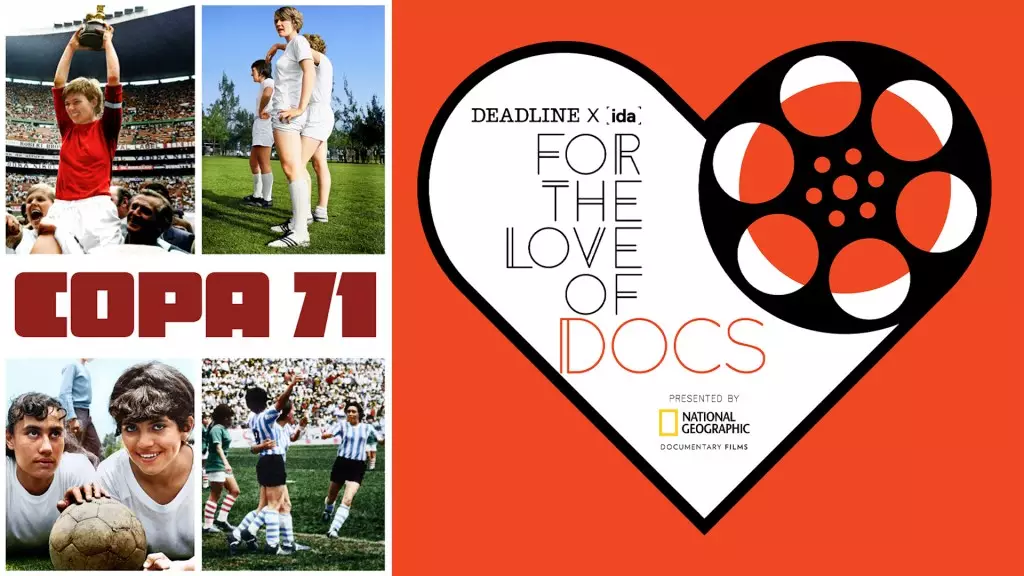In the realm of sports, certain events carve their legacy into the fabric of history. One such event is the 1971 Women’s World Cup, held at Azteca Stadium in Mexico City. Despite being informally recognized, this tournament witnessed a groundbreaking turnout of over 110,000 spectators, establishing it as one of the largest audiences ever gathered for a women’s sporting event. This extraordinary gathering not only represents a significant milestone in women’s soccer but also serves as a poignant reminder of how female athletes have often been relegated to the margins within the sports narrative. This stark contrast is compellingly explored in the documentary film *Copa 71*, directed by Rachel Ramsay and James Erskine.
The origins of *Copa 71* highlight a fascinating journey of reclamation and rediscovery. As producer Victoria Gregory recounts, the project was ignited by a chance radio piece featuring a former England player. Gregory’s husband encouraged her to investigate this “unbelievable story,” leading to a meticulously curated capturing of archival footage and interviews with surviving players. However, initiating dialogue with these athletes proved challenging due to their complex experiences. Many former players had remained silent about their participation in the tournament, often feeling the weight of societal norms that diminished their achievements.
The relationship-building process with these players was critical. As Gregory noted, trust was essential, and the filmmakers were committed to sensitively portraying their stories. This approach was vital, considering the historical context of how women athletes were depicted by media figures at the time. Many female players faced derogatory labels and were objectified rather than celebrated for their talent and skill.
Watching *Copa 71*, it becomes evident why participants might have reservations about sharing their experiences. Despite the tournament marking a peak in women’s soccer, the adversities faced by players were manifold. They contended not only with societal prejudice but also with the systemic structures that aimed to undermine their credibility and visibility in sports. These stories and their echo in contemporary discussions about gender equality in sports are crucial. The documentary invites viewers to confront these uncomfortable truths and consider how little has changed since those early days of women’s soccer.
The film draws parallels to current events, including the scandal involving Luis Rubiales, the former president of the Royal Spanish Football Federation, who infamously kissed a player without her consent during a medal ceremony. This exploitation of power resonates with narratives from 1971, prompting critical reflection on the evolution of women’s rights and autonomy in sports. As Ramsay notes in her commentary on the film, key themes such as financial independence, sexual autonomy, and the impact of media maintain an unsettling relevance in today’s sporting landscape.
*Copa 71* does not shy away from addressing the stark realities of economic disparities in women’s sports. Although a massive audience celebrated the event, the athletes themselves saw little financial benefit. The documentary sheds light on the Mexican women’s team’s brief strike, a poignant moment showcasing their demand for fair compensation for their labor and talent. This quandary extends beyond individual tournaments, highlighting the ongoing struggle for gender equality in athletics.
Erskine points out that discussions around financial rewards often distract from broader conversations about control and autonomy. The dynamics of power play a profound role in how female athletes are perceived and treated within their sports ecosystems. In an era when women are increasingly taking spaces in male-dominated sports, the documentary posits that the battles over recognition and respect remain a core contention.
The documentary shines a light on the intersectionality of gender politics and sports, revealing how historical moments like the 1971 tournament reverberate through time. The narrative showcases how past injustices inform contemporary struggles, urging audiences to recognize the cyclical nature of these issues.
As sports continue to shape societal norms and values, *Copa 71* acts as both an exhibition of courage and a call to action—an insistence that women’s voices in sports must not only be heard but celebrated. The filmmakers remind viewers that self-expression in sports is a fundamental right, transcending beyond merely achieving accolades or financial gains. *Copa 71* is more than just a historical account; it is a powerful reminder that the fight for equality in sports is ongoing and that the legacies of past athletes deserve recognition and reverence.
This documentary series, presented by National Geographic, promises to continue shedding light on these essential narratives, ensuring that while history may have tried to erase these women from the sports dialogue, their contributions and struggles are eternally immortalized.

